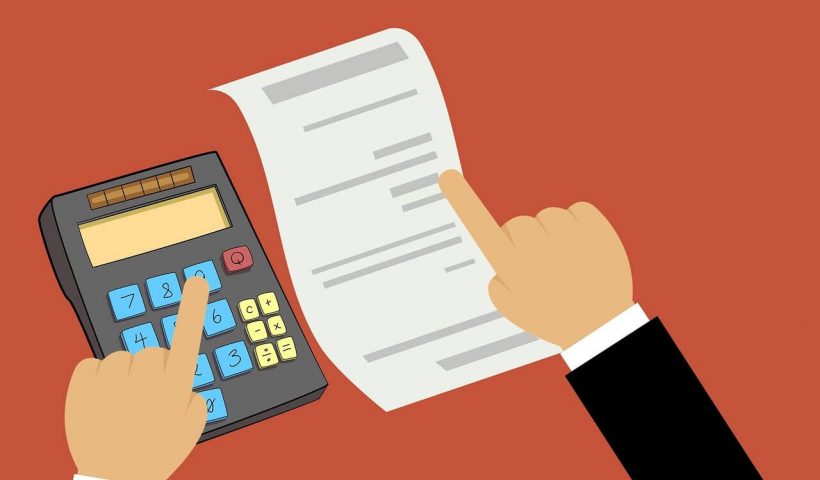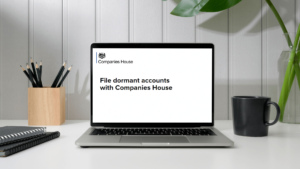What Expenses Can I Include In My Self Assessment Tax Return

The time has come. You need to prepare and submit your self-assessment tax return but the question is
What can you claim as an expense when you’re self-employed?
Self-employment has its advantages but there are certain aspects of it that can be a bit confusing. One of them is allowable expenses for self-employed.
When you’re self-employed, there’s a thin line between what is personal and what relates to business and you have to be very careful when doing your self-assessment tax return to include only business expenses.
Having a separate business bank account and an organised system of keeping business records can come handy here.
And…
save you hours of tedious work every time you have to prepare and submit your self-assessment tax return.
The Most Important Rule About Business Expenses For Self-Employed Is:
Your expenses have to be wholly and exclusively for business purposes.
If some of your expenses don’t meet this condition, you can’t include them.
But what if sometimes you pay for something that has both business and private use?
For example:
You went to the stationary shop and purchased pens and notebooks. Some of these things are for home only but you paid using one card. It was easier this way than using two separate cards.
What do you do in this situation?
And here comes…
The Second Very Important Rule About Business Expenses For Self-Employed:
If your expense has a dual purpose- part of it is for business use and part of it is personal- you can only claim a business part of it.
What does it mean in practice?
If we use our above example with pens and notebooks, you only include the items that you bought to be used in your business.
This is a simple example.
With more complex expenses, you need to find a fair way of calculating a business proportion by using for example a floor space, number of rooms, time, number of calls in case of telephone expenses etc.
So we have two important rules covered.
Now let’s go into more details and look at specific expenses.
Self-Employed Allowable Expenses List
Office expenses
If you have a separate office, the situation is easy. You can claim all expenses like utility bills, water, business rates, rent, property insurance, security costs and cleaning.
Telephone
If you have a separate number for your business, you can claim all costs associated with this. However, if you also use your phone for personal calls, you can deduct only costs related to your business.
Stationery and office equipment
All the things that you use for business can be claimed, so for example paper, ink, pens, envelopes etc. However, if something is used both for your business and privately, you can include only a business part of your expenses.
A good example could be printing.
If you have a printer and buy printing paper which is also used by your family, you need to find a fair way of calculating your business cost. You can’t include the whole amount you’ve spent on paper.
Advertising and marketing
If you’re trying to grow your business, you probably know your advertising and marketing costs can be quite high. But the good news is that all these costs are allowable for tax purposes.
Insurance
All types of insurance that cover your business or your business premises, for example, professional indemnity insurance, employer’s liability insurance or public liability insurance can be tax deductible.
Professional fees
If you outsource some work to a bookkeeper or an accountant or use a solicitor or an architect, you can classify these expenses as tax deductible.
Subscriptions
Do you pay membership fees to professional bodies related to your business? If yes, you can include these expenses in your self-assessment tax return. You can also claim trade and professional journals fees, however, any payments to political parties or donations to charities, whether regular or one-off, are disallowed.
Travel
Travel expenses are quite complex and it’s always best to check these with an accountant. Don’t claim for travel only because other self-employed person does it. There may be some differences between your situations and you may be putting yourself in some big trouble if you start claiming for something you aren’t allowed to.
You can’t definitely claim for non-business travel costs and travel between your home and work. So if you have a separate office where you go to work, this journey isn’t allowable. Any fines, even if the travel was for business purposes, can’t be claimed either.
If a journey is for business purposes, you can claim costs like for example bus and train fares, parking, fuel if you use a car or hire charges. You can also include repair costs, vehicle insurance or vehicle licence fees if you have a business car.
In regard to travel, there’s also an aspect of your work routine. It will be different for different self-employed people. And that’s where the complex part can be. So as mentioned before, always consult travel costs with a specialist.
Accommodation
Do you sometimes go on business trips where you have to stay in a hotel overnight and have a meal? These costs are tax deductible.
Training courses
Can you claim for training if you’re self-employed? The answer is- it depends. If training helps you keep up to date with the skills and knowledge you already use in your business, these costs can be included in your self-assessment tax return.
However, if training means gaining new skills and knowledge that will either help you expand your business area or open a completely new business, then the answer is- no, you can’t include these costs.
Staff costs
Your business is growing and you can’t be a one man band anymore, so you take on new staff. Great news is lots of these costs are tax deductible. For example, staff salaries, bonuses, employer’s National Insurance, benefits and pensions.
Do you or your staff need to wear special clothes while working like protective clothing? You can claim these costs too; however, normal clothes can’t be included. What is more, if you use an agency to recruit staff, you can deduct these costs as well.
VERY IMPORTANT– your own salary costs, pension and life insurance aren’t allowable expenses.
Can I claim entertainment as a business expense?
Do you sometimes take your clients out for meals as a part of building business relationships? Or maybe you send them gifts? Unfortunately, HMRC doens’t allow to claim entertainment costs and non-promotional gifts.
The list of allowable expenses on this website isn’t exhaustive.
Each business is different and there may be some expenses that you can additionally claim. That’s why, if you’re not sure whether something is or isn’t an allowable expense in your situation, check it with a specialist- either a bookkeeper or an accountant.

Your Accountant in Oxford
Oxford Office
Joanna Bookkeeping
The Wheelhouse Angel Court
First Floor, Angel Court
81 St Clements St
Oxford
OX4 1AW
Connect
joanna@joannabookkeeping.co.uk
01865 591952





